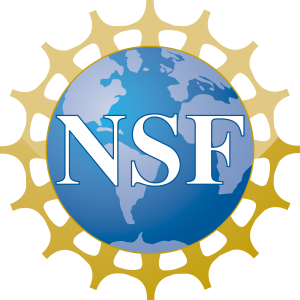 The following is an excerpt from a National Science Foundation (NSF) news release.
The following is an excerpt from a National Science Foundation (NSF) news release.
The NSF announced three new Expeditions in Computing awards, each providing $10 million in funding over five years to multi-investigator research teams pursuing large-scale, far-reaching and potentially transformative research in computer and information science and engineering. This year’s awards aim to enable game-changing advances in real-time decision making, quantum computing, and non-invasive biomedical imaging. They also aim to more rapidly bring to market practical applications of quantum computing and enable non-invasive and easy-to-use diagnostic imaging of the human body that could increase the quality of healthcare in remote areas.
Below are descriptions of the three projects funded this year.
- Secure, Real-Time Decisions on Live Data, Ion Stoica, University of California, Berkeley.
A new era is rising in which AI systems will play an increasingly central role in people’s lives by revolutionizing healthcare, transportation, and the way business is conducted. This Expeditions project seeks to build AI decision systems to address these challenges by developing open source platforms, tools and algorithms for Real-time, Intelligent, Secure and Explainable (RISE) decisions. - Enabling Practical-scale Quantum Computing, Frederic Chong, The University of Chicago.
Quantum computing sits at the precipice of a potentially game-changing revolution in the field of computer and information science. Quantum machines may soon be capable of performing computations that advance AI, computer security, chemistry and other fields in ways that are extremely difficult or even impossible for today’s computers. By developing new algorithms, software and hardware designs tailored to key properties of quantum technologies capable of 100 to 1,000 quantum bits — where a quantum bit is the single unit of quantum information — this project will increase the efficiency of practical quantum computation and aid in transitioning quantum computing out of the laboratory and into practical use. - Computational Photo-Scatterography: Unraveling Scattered Photons for Bio-imaging, Ashutosh Sabharwal, Rice University.
Light scatters as it travels through the human body. As this happens, the spatial information from different points within the body becomes entangled. The principal goal of this Expeditions project is to develop a computational imaging system, called Computational Photo-Scatterography (CPS), that effectively unravels scattered light and facilitates non-invasive bio-imaging deep beneath the skin at cellular-level resolutions. The project has the potential to fundamentally transform medicine and healthcare delivery by enabling live views of cross sections of human anatomy simply by pointing a camera at any part of the body.
The Computing Community Consortium (CCC) will be hosting a Quantum Computing Workshop in May 2018 led by Margaret Martonosi from Princeton University. Stay tuned to our website to learn more.









